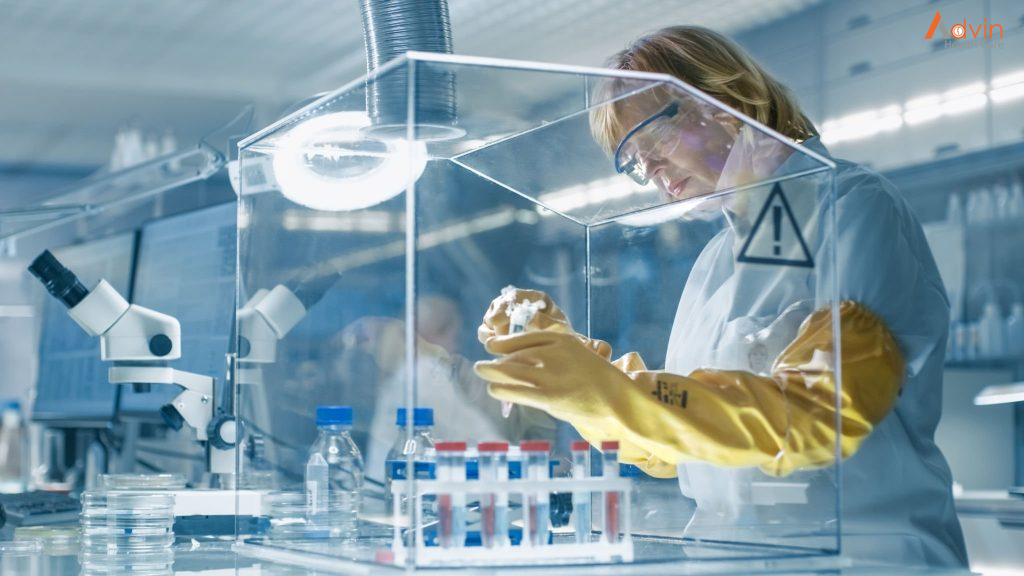In the realm of modern medicine, clinical pathology labs play a pivotal role in diagnosing, managing, and preventing diseases. These laboratories are essential for interpreting complex biological data, and their work is integral to patient care. This article explores the critical functions of clinical pathology labs, their various sub-disciplines, and their impact on healthcare.
What is Clinical Pathology?
Clinical pathology is a branch of medicine that focuses on the diagnosis of disease through the analysis of bodily fluids and tissues. It involves examining blood, urine, and other specimens to detect abnormalities and guide treatment decisions. Unlike anatomic pathology, which deals with the examination of organs and tissues under a microscope to diagnose disease, clinical pathology is more concerned with lab tests and their implications for patient care.
Core Functions of Clinical Pathology Labs
- Diagnostic Testing
At the heart of clinical pathology is diagnostic testing. Labs conduct a range of tests, including hematology (study of blood), clinical chemistry (analysis of blood and other body fluids), microbiology (detection of pathogens), immunology (study of immune responses), and molecular diagnostics (detection of genetic and molecular abnormalities). These tests help in diagnosing diseases, monitoring the progression of conditions, and evaluating the effectiveness of treatments.
- Disease Management and Monitoring
Clinical pathology labs are crucial for managing chronic diseases like diabetes, heart disease, and cancer. Regular monitoring through lab tests allows healthcare providers to track disease progression, adjust treatment plans, and make informed decisions about patient care. For instance, regular blood glucose testing helps in managing diabetes, while lipid panels aid in assessing cardiovascular risk.
- Preventive Health
Labs also play a role in preventive health through screening programs. Tests for cholesterol levels, blood pressure, and cancer markers can identify risks before symptoms develop. Early detection of potential health issues can lead to earlier intervention and better outcomes. For example, routine screenings for correctional cancer can detect precursors to cancer, allowing for early treatment and improved prognosis.
- Research and Development
Clinical pathology labs contribute significantly to medical research. By analyzing large datasets from patient samples, researchers can discover new biomarkers, develop innovative diagnostic tests, and improve existing methods. This research drives advancements in personalized medicine, where treatments are tailored to individual genetic profiles, improving effectiveness and reducing side effects.
Specialized Sub-Disciplines
- Hematology
Hematology focuses on blood disorders, including anemia, leukemia, and clotting disorders. Hematologists use tests such as complete blood counts (CBC) and bone marrow examinations to diagnose and manage these conditions. Advances in hematology have led to improved treatments and better understanding of blood-related diseases.
- Clinical Chemistry
Clinical chemistry involves the analysis of blood and other bodily fluids to detect chemical imbalances and assess organ function. Tests like liver function tests, renal panels, and electrolytes are common in this sub-discipline. Clinical chemists use advanced techniques to measure levels of various substances, aiding in the diagnosis of metabolic disorders and monitoring of treatment efficacy.
- Microbiology
Microbiology is concerned with identifying microorganisms such as bacteria, viruses, fungi, and parasites that cause infections. Microbiologists use culture techniques, staining methods, and molecular tests to detect and identify pathogens. This information is crucial for selecting appropriate antibiotics or other treatments and for tracking outbreaks of infectious diseases.
- Immunology
Immunology labs study the immune system and its response to diseases. They perform tests to assess immune function, diagnose autoimmune disorders, and evaluate allergic reactions. Immunologists work on understanding how the immune system interacts with pathogens and how it can be modulated to treat diseases.
- Molecular Diagnostics
Molecular diagnostics involves analyzing DNA, RNA, and proteins to identify genetic and molecular abnormalities. This sub-discipline includes tests for genetic disorders, cancer mutations, and infectious diseases. Techniques like polymer chain reaction (PCT) and next-generation sequencing (GS) are used to provide detailed and precise information for diagnosis and treatment.
The Future of Clinical Pathology Labs
The field of clinical pathology is continually evolving with technological advancements. Automation and artificial intelligence (AI) are transforming lab processes, increasing efficiency, and reducing human error. AI algorithms can analyze complex data patterns, assist in diagnostic decision-making, and predict patient outcomes. Additionally, personalized medicine and genomics are pushing the boundaries of what clinical pathology labs can achieve, enabling more targeted and effective treatments.
In summary, clinical pathology labs are fundamental to modern healthcare. They provide essential diagnostic, management, and preventive services that enhance patient care and drive medical research. As technology and scientific understanding advance, these labs will continue to play a critical role in shaping the future of medicine and improving patient outcomes.
